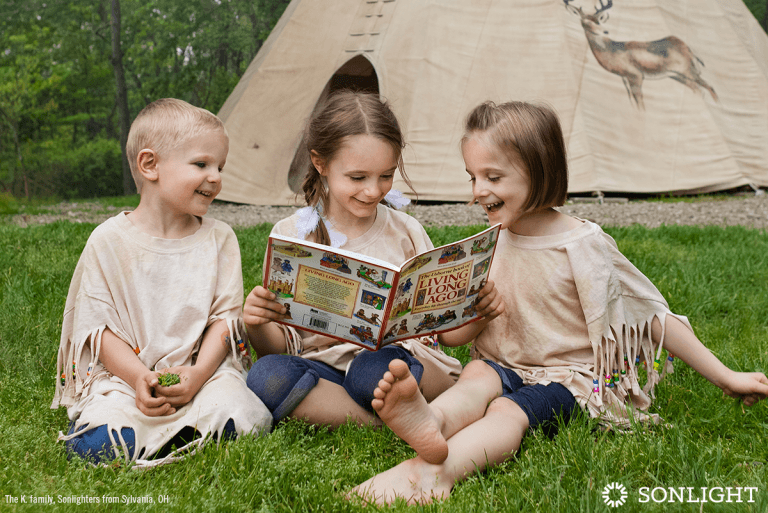
Not until I was an adult did I fully appreciate how my father educated me.
I had a childhood that you typically find only in dreams. I was raised on a mountain in the heart of the River Valley of Arkansas. My dad worked at the Winthrop Rockefeller Center on Petit Jean Mountain, a non-profit organization that worked with countries all over the world to make life better for many.
I can remember visiting my dad at work and walking into the dining room at lunch time and feeling like I was taking a trip around the world. People from every continent were represented. My dad would often introduce me to someone from another country as if they had been friends for years. He longed for me to understand how amazing the opportunity was to speak to representatives from many of the countries of the world.
But I was painfully shy and barely managed a simple hello before ducking back behind my dad again. He would take me around and tell me about all the projects that WRC had begun and why it was important. He taught me one of Mr. Rockefeller’s mottoes, “Give a man a fish, feed him for a day. Teach him to fish, feed him for life.”
Later in my childhood, my dad took us on a rare family trip to see an Egyptian Tombs exhibit. I decided early on that I wasn’t interested and spent my time there counting down the minutes until we left. I look back on these moments now and think, “I had no idea how truly amazing those opportunities were!” This realization caused me to question...how will I help my children to appreciate the experiences I provide them?
I will give them a framework to appreciate education.
1. Love Learning
Growing up, I thought that history was the most boring subject I ever had to sit through. I remember one teacher in particular who made me actually look forward to my history class, and it was simply because she genuinely enjoyed it. There was a spark in her eye when she lectured. That little spark I saw caused me to think that maybe history wasn’t so bad.
When we teach, our kids pick up on our attitude toward subjects. If we enjoy history, chances are good that they will too. If we are really excited about a new book, our kids will probably be really excited too. Model your own love for learning. Talk about how it makes you feel to learn something new even though you aren’t in school anymore.
2. Use Living Books
This is huge. There is nothing that kills curiosity more than a dull, dry textbook. A living book, written by a person who is invested in the material is the best way to learn about the world. Living books open our eyes to culture, history, and possibilities. We come alive when we read enthralling accounts of wars, disappearing civilizations, and cultures of the world. Don’t squash your child’s interest with dry reading.
3. Dream
Dream with your kids about the places you’d like to visit. As you study topics, think of places that would be fun to visit to learn more about your study. Daydream outloud about what you would do there and the things you might be able to see. Look to see if there is an online tour of a great museum.
Would you like to visit Europe? Tell your kids about it. Ask them where they would love to visit. Work with them to expand their dreams beyond popular theme parks. You might even have them help plan an educational road trip. Giving your child ownership can help them be invested so they will appreciate the opportunity more.
4. Give Them Experiences Even If They Don’t Appreciate Them
Chances are that our children won’t appreciate the experiences we provide to the extent that we would like. But, do it anyway.
Because one day, they will be like me, and they’ll remember the opportunities you gave them. That will inspire them to give those same experiences to their children...your grandchildren.
5. Teach Them the Bible
- When you study God’s Word and consider how His hands formed the galaxies, you can’t help but be in awe of space.
- When you study geography and find out the places where Jesus traveled, a flame is lit within.
- When you study history to find the civilizations that disappeared because of God’s wrath, you can’t help but tremble a bit.
Our kids must have an understanding of the Bible to appreciate education. It is the basis of Math, Science, History, Language Arts, Art, Music...the list goes on and on. I’ve always believed that if I am diligent to teach the Bible, everything else will come. So far, I’ve been right. God’s word is the most important part of the day, and it provides a framework for us all to appreciate the world around us.
Just the other day, I looked at my dad and said, “I wish I knew what a great childhood you and Mom gave me earlier.” I’m so thankful that even though I didn’t fully appreciate it at the time, I was able to express my gratitude many years later for the memories that have lasted in my mind and heart all these years. I have no doubt that my parents’ love of learning rubbed off on me, and in turn, to my kids.
Our children will probably never know the great lengths we go to, the sacrifices we make, to assure that they have a great childhood. But in life, it’s the unseen acts that reap the biggest harvest. It’s being faithful in the little things every single day that build the framework for a lifelong appreciation of education.
To find out more about Sonlight's complete book-based homeschool programs, order a complimentary copy of your catalog today.








